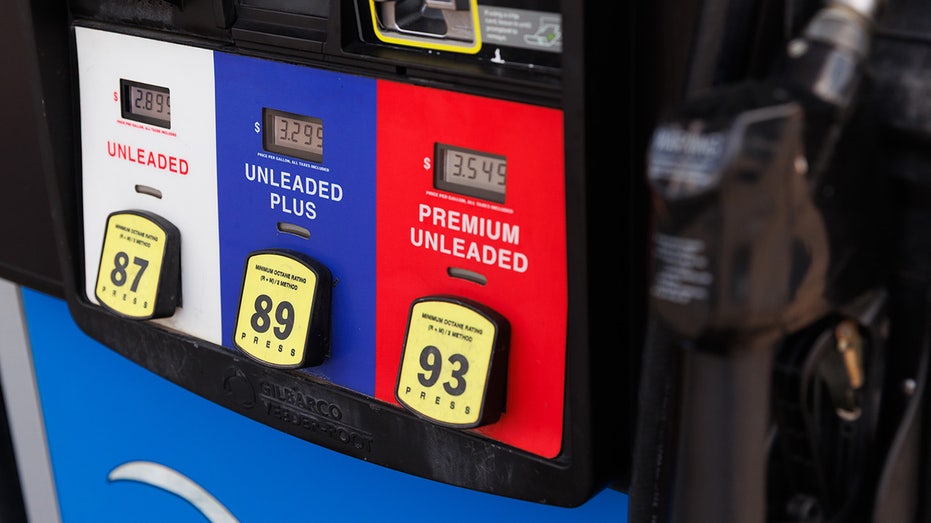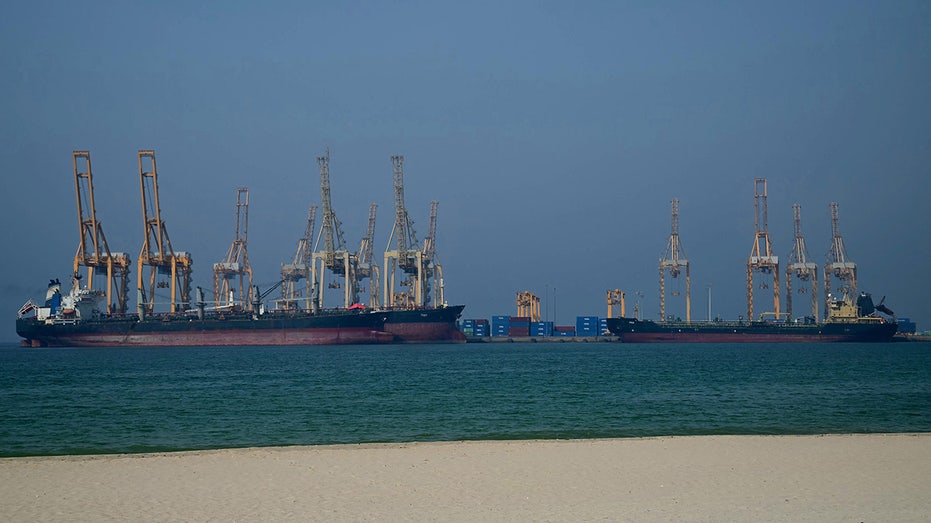Patrick De Haan, GasBuddy’s head of petroleum analysis, says a rise in gas prices from a potential Iranian shutdown of the Strait of Hormuz “would not last long.”
Motorists don’t have to worry about a massive spike in prices at the gas pump yet, according to industry analysts.
Oil prices, which account for more than half of what consumers pay at the pump, fell Monday morning after temporarily surging Sunday following U.S. strikes on three key Iranian nuclear sites over the weekend.
The price of West Texas Intermediate (WTI) sat around a one-year-high, while global benchmark Brent crude neared a five-month-high last week as the conflict between Israel and Iran intensified. As of Monday, WTI has dropped to around $73 a barrel and Brent is sitting around $76 a barrel.
GasBuddy’s head of petroleum analysis, Patrick De Haan, said this is good news for those at the pump. “Knee jerk” reactions in the market are typical after major activity.
MAJOR OIL PRICE SHOCK LOOMING AS ISRAEL-IRAN CONFLICT THREATENS CRITICAL GLOBAL SHIPPING PASSAGE
“Motorists will likely continue seeing a slow but steady increase in gas prices for now,” De Haan said. “You don’t really have to worry about massive spikes just yet.”
Customers refuel at a Love’s gas station in Dallas, Texas, on May 7, 2025. (Shelby Tauber/Bloomberg via Getty Images / Getty Images)
He estimated that the increase over the course of the week will be between 10 and 15 cents, saying it’s similar to what consumers saw last week.
Lipow Oil Associates President Andy Lipow expects gas prices to have only a “modest” rise of 3 to 5 cents over the coming days.
EXXONMOBIL CEO TALKS OIL SUPPLY AMID IRAN-ISRAEL CONFLICT
However, Lipow said that any retaliatory attack by Iran could spook the oil market, leading to far higher prices.

Oil prices fell Monday after temporarily surging Sunday following U.S. strikes on three key Iranian nuclear sites over the weekend. ( Shelby Tauber/Bloomberg via Getty Images / Getty Images)
The market thinks that China, which purchases over 90% of Iranian oil exports along with significant quantities of Middle Eastern crude oil, will pressure Iran to avoid shutting the Strait of Hormuz, according to Lipow. Iran has threatened to close the strait to shipping traffic after the U.S. strikes on Iranian nuclear facilities.
“While closing the Strait may not be in Iran’s economic interest, if Israel were to attack their main export facility at Kharg Island, they might,” Lipow said.

Tankers are seen at the Khor Fakkan Container Terminal along the Strait of Hormuz, a waterway through which one-fifth of global oil output passes on June 23, 2025. (GIUSEPPE CACACE/AFP via Getty Images / Getty Images)
The strait is a critical waterway that connects the Persian Gulf with the Gulf of Oman and the Arabian Sea. The waterway handles the world’s largest crude oil tankers and is considered one of the world’s most important oil chokepoints, according to the Energy Information Administration (EIA).
GET FOX BUSINESS ON THE GO BY CLICKING HERE
In 2024, 20 million barrels of oil per day, about 20% of global petroleum liquids consumption, flowed through the waterway. There are also very few alternative options to move oil out of the strait if it is closed, according to the EIA.
If oil exports through the strait are affected, oil prices could easily hit $100 a barrel, according to Lipow. That would raise gasoline prices by about 75 cents per gallon from recent levels. There are predictions that oil could rise to between $120 and $130 per barrel. If so, gasoline prices would rise by $1.25 per gallon.